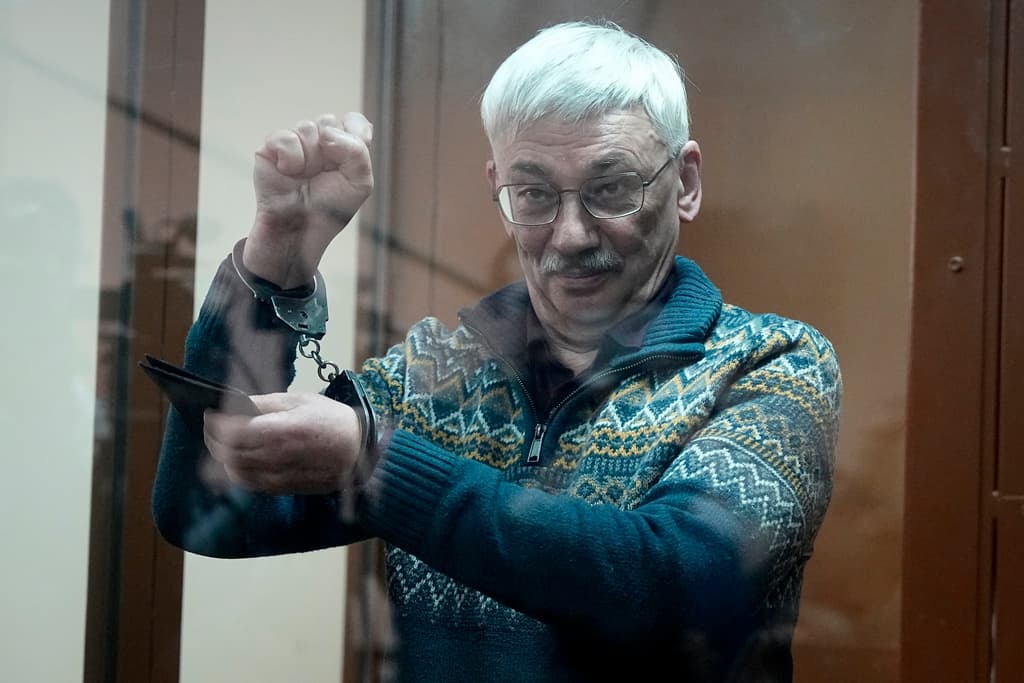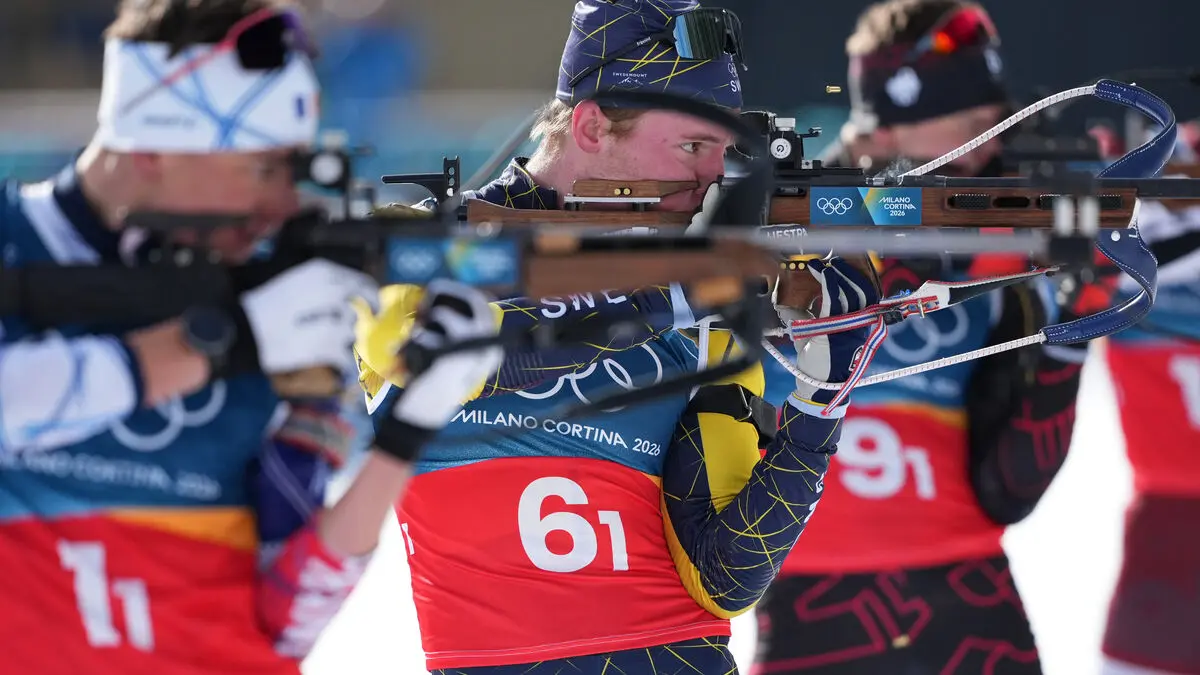Russia confirms prison sentence for Oleg Orlov, a well-known Russian regime critic and recipient of the 2022 Nobel Peace Prize.
In court, Orlov compared Russia to Germany under the Nazis.
The 71-year-old Orlov, a leading figure in the human rights organization Memorial, had appealed the 2.5-year prison sentence he was given in February for his criticism of Russia's war in Ukraine. The verdict against Orlov led to international outrage and has generally been seen as a marker of how far the Kremlin is willing to go to suppress regime critics.
Orlov used Thursday's hearing to reinforce his criticism of the Kremlin. Via video link from the prison in Syzran, he quoted a prosecutor at the Nuremberg trials to describe Russia's justice system.
They distorted, falsified, and ultimately achieved the complete destruction of justice and the law. They made the justice system an integral part of the dictatorship, Orlov told the court.
These words are surprisingly fitting to describe the current state of the Russian justice system, he added.
Orlov was convicted of showing "hostility towards traditional Russian religious, moral, and patriotic values" in a newspaper column about the war in Ukraine. In the column, he described Russia as a fascist state guilty of mass murder of civilians in Ukraine.
Several prominent Russian human rights activists were present in court on Thursday to show their support for Orlov, including the former editor-in-chief of the independent Novaya Gazeta, Dmitri Muratov – since 2023 labeled as a "foreign agent" by Moscow.
Hundreds of Russians have been imprisoned for openly criticizing the Russian invasion of Ukraine.
In the late 1980s, during the Soviet leader Mikhail Gorbachev's "glasnost" (openness), Russian human rights activists sensed a breath of fresh air. In 1989, they formally united in the organization Memorial, which was to play a major role in the collapse of the dictatorship and afterwards.
One of Memorial's founders, and its first chairman, was the nuclear physicist and former dissident Andrei Sakharov, who received the Nobel Peace Prize in 1975.
The primary goal was to document the Soviet authorities' extensive crimes and highlight the victims. This included, among other things, the many Gulag camps and "the great purge" during Joseph Stalin's time in power. Later, Memorial continued to work on human rights issues in modern Russia.
In 2021, Russia's Supreme Court decided to dissolve the organization itself.
In 2022, the organization shared the Nobel Peace Prize with the Belarusian human rights activist Ales Bialiatski and the Ukrainian organization Center for Civil Liberties.






